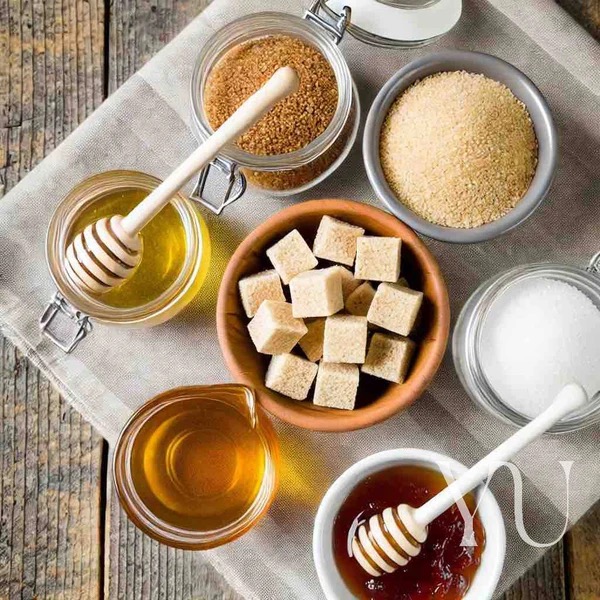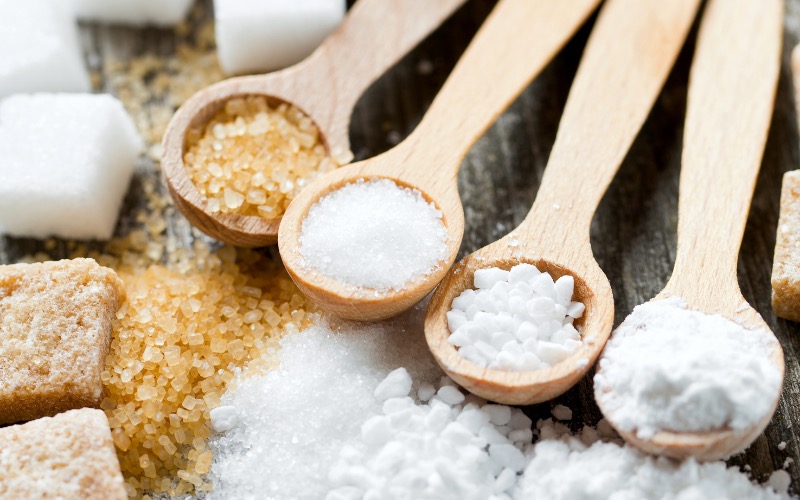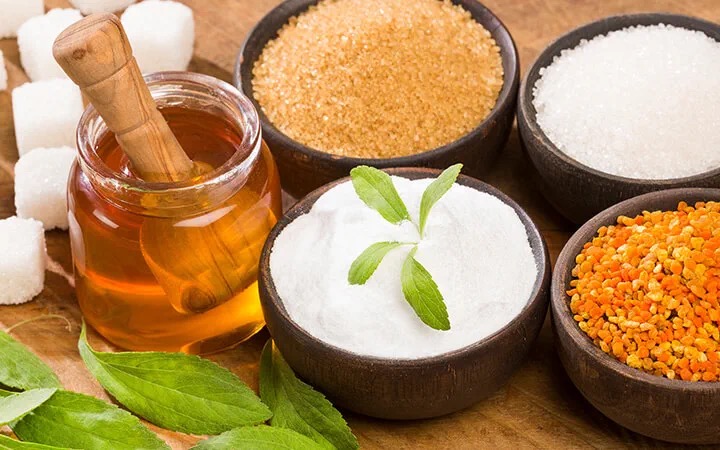Views: 222 Author: Sara Publish Time: 2025-08-15 Origin: Site








Content Menu
● Introduction to Artificial Sweeteners and Inflammation
● Mechanisms Behind Inflammation Triggered by Artificial Sweeteners
● Scientific Studies and Controversies
● Health Implications of Artificial Sweetener-Induced Inflammation
● Frequently Asked Questions (FAQs)
>> 1. Do all artificial sweeteners cause inflammation?
>> 2. How do artificial sweeteners affect gut health?
>> 3. Are natural sweeteners a better alternative?
>> 4. Can artificial sweeteners trigger inflammation in everyone?
>> 5. How can manufacturers reduce the inflammatory risk in sweetened products?
Artificial sweeteners (AS) are synthetic sugar substitutes designed to provide intense sweetness with little or no calories. Since their debut in the 1950s, they have been widely used as a strategy to reduce sugar intake and combat obesity and diabetes. Common AS include aspartame, saccharin, sucralose, and stevia. While approved by regulatory bodies such as the FDA, emerging scientific evidence suggests that some artificial sweeteners may influence inflammatory pathways, potentially affecting gut health and overall immunity.
Many commercial artificial sweeteners are blended with fillers like maltodextrin or silica to improve texture and taste. These additives, although considered safe in small amounts, have been associated with changes in gut microbiota and gut wall inflammation. The effects of artificial sweeteners on inflammation depend on various factors including the sweetener type, dosage, duration of use, and individual genetic susceptibility.

When consumed, certain artificial sweeteners, such as aspartame, break down into metabolites including aspartic acid, phenylalanine, and methanol. These metabolites have been shown to stimulate the release of pro-inflammatory cytokines—small signaling molecules that activate immune cells and promote inflammation. The excess production of these cytokines can trigger systemic inflammatory responses affecting multiple organs.
Artificial sweeteners can also alter the gut microbiota—the diverse community of microorganisms in the digestive tract—which plays a crucial role in immune regulation. Disruption of this balance, or dysbiosis, can promote intestinal inflammation and contribute to diseases such as inflammatory bowel disease (IBD). The bidirectional communication between the gut and the liver, known as the gut-liver axis, is another pathway through which artificial sweeteners might induce hepatic inflammation.
Several studies indicate that artificial sweeteners can affect the integrity of the intestinal barrier. A compromised gut barrier allows endotoxins and harmful bacteria to translocate into the bloodstream, provoking systemic inflammation and immune responses. This phenomenon is particularly concerning for individuals with pre-existing gut conditions or immune sensitivities.
Furthermore, artificial sweeteners may influence oxidative stress levels. Oxidative stress occurs when there is an imbalance between free radicals and antioxidants in the body. Some AS metabolites can increase the generation of reactive oxygen species (ROS), which can damage tissues and further exacerbate inflammatory processes. This oxidative damage is linked to chronic inflammation and the progression of metabolic diseases.
The scientific literature presents mixed and sometimes conflicting findings around artificial sweeteners and inflammation.
- Splenda (Sucralose): Studies on mice genetically predisposed to IBD demonstrated increased gut inflammation markers and bacterial penetration of the gut wall following Splenda consumption, while healthy mice did not show these adverse effects.
- Stevia: Research on stevia-containing products revealed both anti-inflammatory and inflammatory outcomes depending on the purity of the extract, dosage, and host genetics. For example, purified stevioside reduced colitis symptoms in mice, whereas prolonged intake of commercial stevia products raised liver and kidney inflammation markers.
- Saccharin: Animal models exposed to saccharin exhibited elevated liver enzymes indicative of hepatotoxicity and inflammation, alongside changes in gut microbiota favoring pro-inflammatory species. Saccharin also increased expression of certain oncogenes.
Such variability highlights the complex interaction between AS, host genetics, microbiome composition, and sweetener formulation. Many human studies are complicated by commercial proprietary blends and potential conflicts of interest, as some research is funded by sweetener manufacturers.
Large-scale epidemiological studies in humans have attempted to link artificial sweetener consumption with inflammatory markers and chronic disease risk, but results are often inconclusive due to confounding factors such as diet composition, lifestyle, and pre-existing health conditions.
A key challenge in research is that many artificial sweetener products contain a mixture of ingredients, making it difficult to isolate the inflammatory impact of the sweetener itself. Additionally, individual variability in microbiota composition means that one person's response to artificial sweeteners can differ significantly from another's. This heterogeneity complicates the development of universal dietary guidelines regarding artificial sweetener use.

Chronic low-grade inflammation is a critical factor in the development of many non-communicable diseases including IBD, cardiovascular disease, type 2 diabetes, and neurodegenerative disorders. By potentially inducing or exacerbating inflammation, artificial sweeteners may contribute to increased disease risk in susceptible individuals.
The disruption of gut microbiota and the gut barrier by artificial sweeteners may also influence metabolic health. Studies have shown associations between AS consumption and insulin resistance, glucose intolerance, and weight gain, despite their low-calorie nature. Inflammation plays a central role in these metabolic disturbances.
Consumers with inflammatory conditions or predispositions should exercise caution with AS use. Functional sweeteners such as erythritol and certain natural sweeteners tend to have better safety profiles concerning inflammation and gut health. Additionally, dietary patterns rich in fiber and whole foods support a healthy microbiome and reduce inflammation risk.
In food and beverage manufacturing—especially in health-focused sectors—using natural sweeteners, functional polyols, and dietary fibers that support gut health can offer competitive advantages. These ingredients improve taste and product palatability while minimizing inflammation risk.
More research is needed to identify the optimal types and blends of sweeteners that balance sweetness, safety, and health benefits. Such studies should consider long-term effects, genetic diversity, and the role of multi-ingredient formulations commonly used in the industry.
Artificial sweeteners, widely used to reduce sugar intake, have complex interactions with human physiology. Although considered safe by regulatory agencies, accumulating evidence shows some artificial sweeteners can promote inflammatory responses, especially in genetically or microbiologically susceptible individuals. Metabolites from sweeteners like aspartame may stimulate immune pathways, while fillers and combined ingredients can disrupt gut microbiota and contribute to intestinal and hepatic inflammation.
Scientific findings are currently mixed and sometimes contradictory, largely due to study design, formulation variability, and host factors. For consumers and manufacturers focusing on health, selecting sweeteners with lower inflammatory potential and using natural, functional ingredients such as polyols and dietary fibers may provide safer alternatives.

Not all artificial sweeteners have the same effect on inflammation. Some, like aspartame and saccharin, have been associated with inflammatory responses, while others like stevia can have either anti-inflammatory or pro-inflammatory effects depending on purity and dosage.
Artificial sweeteners can alter the gut microbiota balance, potentially increasing harmful bacteria and decreasing beneficial bacteria. This dysbiosis may trigger immune reactions and intestinal inflammation, especially in sensitive individuals.
Natural sweeteners such as erythritol, monk fruit extracts, and certain fibers tend to have fewer inflammatory effects and may support healthier gut microbiota. However, individual responses can vary.
No. The inflammatory impact of artificial sweeteners often depends on individual genetics, microbiome composition, existing health conditions, and the type and amount of sweetener consumed.
Manufacturers can use blends of natural sweeteners, functional polyols, and dietary fibers with low inflammatory potential. Avoiding excessive fillers and additives that may irritate the gut can also help.
[1] https://pmc.ncbi.nlm.nih.gov/articles/PMC8497813/
[2] http://money.finance.sina.com.cn/corp/view/vCB_AllBulletinDetail.php?stockid=301206&id=7370608
[3] https://oobli.com/blogs/news/does-aspartame-cause-inflammation
[4] https://money.finance.sina.com.cn/corp/view/vCB_AllBulletinDetail.php?stockid=002286&id=10970144
[5] https://www.h-wave.com/blog/5-foods-that-cause-inflammation-to-avoid/
[6] https://q.stock.sohu.com/cn,gg,002286,11252103210.shtml
[7] https://www.health.harvard.edu/heart-health/sugar-substitutes-new-cardiovascular-concerns
[8] https://www1.hkexnews.hk/listedco/listconews/sehk/2025/0530/2025053000074_c.pdf
[9] https://www.sciencedirect.com/science/article/pii/S1550413125000063
[10] https://www.heysong.com.tw
